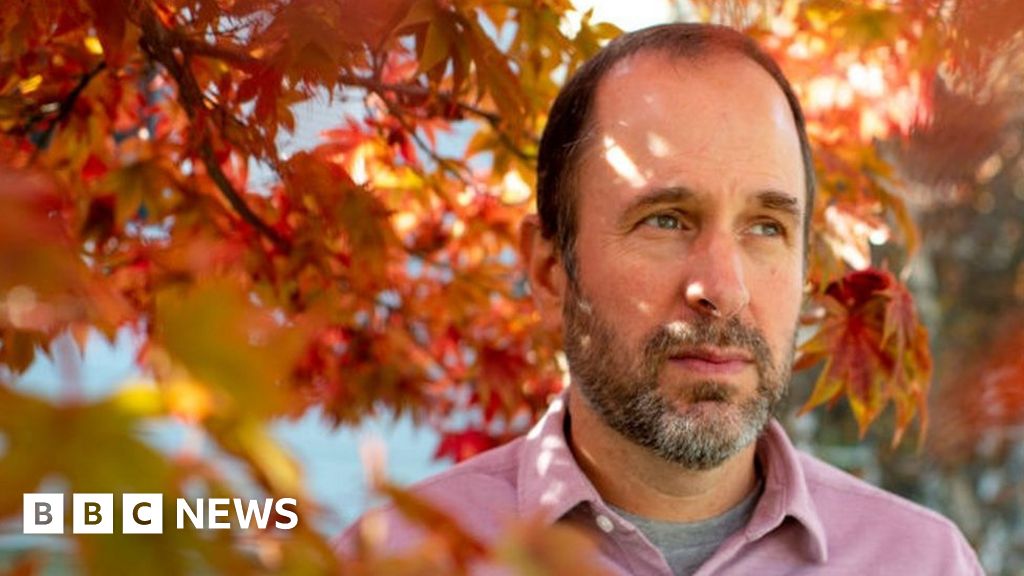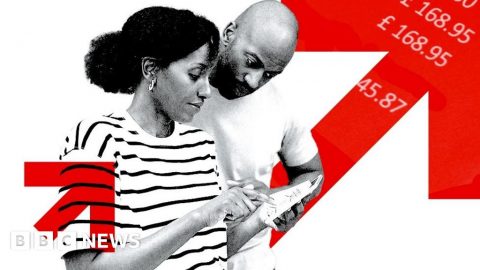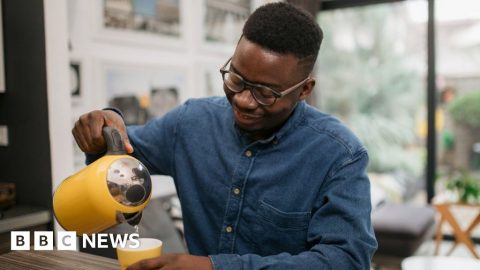
Such use of AI to artificially bring people back to life has long been explored in science fiction, but developments in AI technology have now made it possible in real life. In 2019, James turned his chatbot into an app and business called HereafterAI, which allows users to do the same for their loved ones.
He adds that while the chatbot didn’t remove the pain of his dad’s death, it does gives him “more than I otherwise would have”. “It’s not him retreating into this very fuzzy memory. I have this wonderful interactive compendium I can turn to.”
While users of HearafterAI can upload photos of their loved one, to appear on the screen of their smart phone or computer when they use the app, another firm that turns people into AI chatbots goes much further.
South Korea’s DeepBrain AI creates a video-based avatar of a person, by shooting hours of video and audio to capture their face, voice and mannerisms.
“We are cloning the person’s likeness to 96.5% of the similarity of the original person,” says Michael Jung, DeepBrain’s chief financial officer. “So mostly the family don’t feel uncomfortable talking with the deceased family member, even though it is an AI avatar.”
The company believes such technology can be an important part of developing a “well dying” culture – where we prepare for our death in advance, leaving family histories, stories and memories as a form of “living legacy”.
The process isn’t cheap though, and users cannot create the avatar themselves. Instead, they have to pay the firm up to $50,000 (£39,000) for the filming process and the creation of their avatar.
Despite this high cost, some investors are confident it will be popular, and DeepBrain raised $44m in its last funding round.









Recent Comments